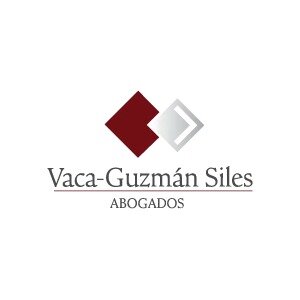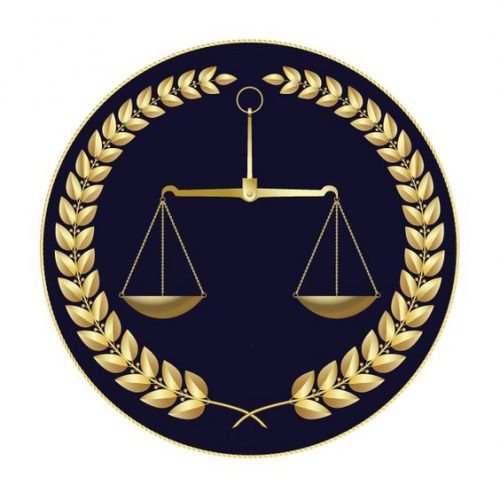Best Mining Law Lawyers in Santa Cruz
Share your needs with us, get contacted by law firms.
Free. Takes 2 min.
List of the best lawyers in Santa Cruz, Bolivia
About Mining Law in Santa Cruz, Bolivia
Mining Law in Santa Cruz, Bolivia, covers the legal framework governing the exploration, exploitation, and commercialization of mineral resources located within the region. Bolivia is a mineral-rich country with significant deposits of various minerals including tin, silver, gold, and lithium. In Santa Cruz, a department known for its economic growth and natural resources, mining activities play a crucial role in local development. The Mining Laws set out the rules for obtaining concessions, environmental protection, community relations, and compliance with national and local regulations. The legal environment is regulated predominantly at the national level, yet local authorities in Santa Cruz also play critical roles in overseeing environmental compliance and land use permissions.
Why You May Need a Lawyer
Engaging in mining activities can be legally complex, and several situations may require specialized legal assistance. For individuals and companies, common scenarios include:
- Applying for or transferring mining concessions
- Navigating licensing and permit processes
- Drafting and negotiating contracts with partners, suppliers, or local communities
- Ensuring environmental compliance and obtaining related authorizations
- Addressing land ownership or land use conflicts with private owners or indigenous communities
- Dealing with government inspections, fines, or disputes over compliance with mining regulations
- Managing joint ventures or partnerships with local stakeholders
- Resolving taxation and royalty disputes
- Litigating or arbitrating mining-related disputes
- Understanding changing regulations or government expropriation risks
A legal advisor experienced in Mining Law can help you avoid costly errors and ensure your operations run smoothly and lawfully.
Local Laws Overview
Mining Law in Santa Cruz, Bolivia, is principally governed by the Bolivian Mining and Metallurgy Law (Law No. 535, enacted in 2014), which applies nationwide. Complementary municipal and departmental regulations may apply, especially regarding land use planning and environmental protection. Key aspects include:
- Mining Concessions: Concessions are granted by the National State and registered by the Autoridad Jurisdiccional Administrativa Minera (AJAM). They are subject to continuous activity requirements and payments of fees and royalties.
- Community Relations: Prior consultation with indigenous or local communities may be required for new projects or significant expansions, especially in protected or indigenous territories.
- Environmental Compliance: Operators must obtain an Environmental License from local authorities and conduct Environmental Impact Assessments (EIAs). Strict regulations apply to waste management and water usage.
- Taxation and Royalties: Taxes and royalties are due on extracted minerals, with rates varying depending on the type and value of minerals.
- Foreign Investment: Foreign investors are permitted in the sector but must adhere to local regulations and may face additional reporting requirements.
- Dispute Resolution: Disputes may be addressed through administrative channels, local courts, or arbitration depending on contract terms and the nature of the disagreement.
Frequently Asked Questions
What is a mining concession and how is it obtained?
A mining concession is a legal right granted by the State to explore and extract minerals within a specific area. Concessions in Santa Cruz are requested through the AJAM, requiring technical documentation and payment of fees. Due diligence, environmental studies, and in some cases, community consultation are also needed.
Do I need environmental permits to start mining in Santa Cruz?
Yes, before starting operations, you must obtain an Environmental License from the relevant environmental authority. This typically involves presenting an Environmental Impact Assessment and complying with ongoing environmental protection measures.
What role do indigenous communities play in the mining process?
If the mining project affects indigenous territories or communities, you must engage in prior consultation according to Bolivian law. Agreements often cover impact mitigation, benefit sharing, and community development.
Are there restrictions on foreign ownership in mining projects?
Foreign individuals and companies can own mining concessions in Bolivia, but must comply with all national and local regulations, including registration and reporting requirements.
How are disputes in mining activities resolved?
Disputes can be addressed administratively, in local courts, or through arbitration, depending on the contract and nature of the issue. Legal advice is recommended to choose the best course of action.
What taxes or royalties apply to mining operations in Santa Cruz?
Mining operations are subject to national taxes and royalties on extracted minerals. Rates depend on the mineral type, market value, and volume produced. Local taxes may also apply.
Can I transfer a mining concession to another party?
Yes, mining concessions can be transferred, but the process requires approval from AJAM and compliance with legal documentation and payment of transfer fees.
What are the penalties for non-compliance with mining regulations?
Penalties can include fines, suspension or revocation of concessions, and in severe cases, criminal prosecution. Maintaining ongoing compliance is essential to avoid such consequences.
How long does it take to obtain a mining concession?
The application process can take several months, depending on the complexity of the project, environmental requirements, and the need for community consultation.
What are my obligations toward local communities as a mining operator?
Operators are expected to respect territorial rights, protect the environment, contribute to local development, and engage in good-faith negotiations with affected communities.
Additional Resources
There are several organizations and agencies that can provide information or assistance regarding Mining Law in Santa Cruz, Bolivia:
- Autoridad Jurisdiccional Administrativa Minera (AJAM) - the regulatory authority for mining concessions and compliance
- Ministerio de Minería y Metalurgia - sets national policy and oversees sector development
- Ministerio de Medio Ambiente y Agua - responsible for environmental licensing and protection
- Gobernación de Santa Cruz - local government responsible for implementing departmental regulations
- Federación de Cooperativas Mineras - provides support and guidance for cooperative mining ventures
- Indigenous associations - offer guidance on community rights and prior consultation processes
- Local law firms specializing in Mining Law - can assist with legal documentation, negotiations, and litigation
Next Steps
If you need legal assistance regarding Mining Law in Santa Cruz, Bolivia, start by collecting all relevant documentation related to your mining activity or interest. This may include property titles, project descriptions, prior agreements, and any correspondence with authorities or communities. Identify your specific needs, such as obtaining a concession, resolving a dispute, or negotiating with local communities. Research qualified legal professionals or law firms in Santa Cruz with experience in Mining Law. Schedule consultations to discuss your situation and determine the best course of action. Remember, engaging a knowledgeable lawyer early in the process can help prevent legal complications and ensure your operations are in compliance with all applicable laws and regulations.
Lawzana helps you find the best lawyers and law firms in Santa Cruz through a curated and pre-screened list of qualified legal professionals. Our platform offers rankings and detailed profiles of attorneys and law firms, allowing you to compare based on practice areas, including Mining Law, experience, and client feedback.
Each profile includes a description of the firm's areas of practice, client reviews, team members and partners, year of establishment, spoken languages, office locations, contact information, social media presence, and any published articles or resources. Most firms on our platform speak English and are experienced in both local and international legal matters.
Get a quote from top-rated law firms in Santa Cruz, Bolivia — quickly, securely, and without unnecessary hassle.
Disclaimer:
The information provided on this page is for general informational purposes only and does not constitute legal advice. While we strive to ensure the accuracy and relevance of the content, legal information may change over time, and interpretations of the law can vary. You should always consult with a qualified legal professional for advice specific to your situation.
We disclaim all liability for actions taken or not taken based on the content of this page. If you believe any information is incorrect or outdated, please contact us, and we will review and update it where appropriate.














